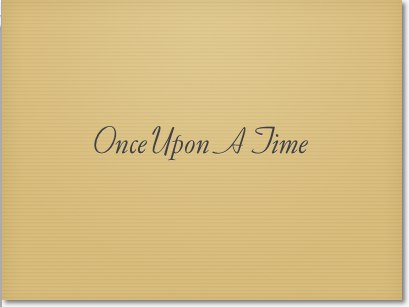by Sharon Fleshman
Once upon a time — those words signaled the start of many stories that captivated us, particularly in our younger days. Whether it is meant to scare, delight, convince or teach, there’s something about a good story that can pull listeners in. As it relates to a job search, a narrative approach can be used to present your career interests and qualifications in compelling and creative ways. Consider the following tips for incorporating “story” into your interviews:
1) Prepare for the “Tell me about yourself” question. Indeed, your answer to this can set the tone for the entire conversation and should make clear why you are sitting in front of the interviewer. Don’t default to just stating “I’m a senior at Penn majoring in…” Trace relevant themes in your background. For instance, suppose you are applying to a position in international development. You may not have a track record in that field per se, but perhaps you can help your interviewer connect the dots regarding your international experiences. You should also identify the defining moments that helped you discern your interest in a given career. For the international development example, you could talk about what occurred during your travels that caused you to become interested in development work.
2) Make sure your stories illustrate relevant skills and accomplishments. Go through your resume and develop the stories that emerge from your experiences. Your stories should have a “plot” with a beginning, middle and end that speaks to the job description. A good way to structure such a story may be to start with the situation at hand, proceed with discussing the actions you took to address the situation, and then end with the result that came from your actions. This approach is especially useful for behavioral questions (“Give me an example of how you served a difficult customer”) or other questions (“What are your strengths?”) where the interviewer wants evidence to back up what you claim to be true. You may not know exactly what you’ll be asked, but anticipate the types of skills that employers seek. Prepare to address areas such as problem solving, teamwork, leadership ability, strengths, weaknesses, and working with difficult customers/clients. Whether you played a key role in increasing membership, improving operations, boosting morale, or strengthening your own performance, you can build a story around the impact you made.
3) Keep it professional and positive. Stories for job interviews should not sound like autobiographies as much as snapshots of experiences that demonstrate that you are a great fit for the position. For instance, discussing resolution of conflict on a team for a group project is likely better than reminiscing about how you broke up a fight between two housemates. Look for the most pertinent highlights from your previous jobs/internships, volunteer experience, study abroad, extracurricular activities and class projects. Also, make sure you maintain a positive attitude. Even if you have to discuss a negative situation, resist the temptation to cast yourself as a hero and others as villains. Stick with sharing what you learned and how you developed in the process.
4) Practice. Storytelling flows from the human condition. It is very natural for us to reflect on what has happened on a given day and “tell the story” to those closest to us. However, applying this tendency to the job search may not feel as natural, so it is good to practice with those who are willing and able to offer helpful feedback. Career Services counselors are available to help you with mock interviews.
Use of stories in the job search can also be applied (in a more concise way) to resume and cover letter writing, as noted in the book Tell Me About Yourself: Storytelling to Get Jobs and Propel Your Career, written by Katharine Hansen and available in the Career Services library. Using storytelling will not only help you to prepare well, but will build your self-awareness and confidence along the way to a positive “The End.”


